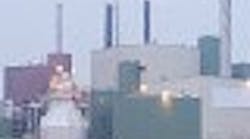By Terrence K. McMahonIN EARLY MAY, Business Week ran a story entitled, “No Longer Lab of the World.” While not exactly announcing the imminent demise of the U.S. Chemicals Industry, it details the steep decline of this engine of wealth-creation.The chemical industry was born in Germany in the Nineteenth Century based primarily on the discovery of synthetic dyes. Medicinal preparations such as Aspirin (Friederich Bayer & Cie trademark) were also largely a German monopoly. Even the capital equipment used in chemicals manufacturing was produced primarily in Germany. Warren K. Lewis, the father of the U.S. chemical engineering profession, received his PhD at the University of Breslau in Germany in 1908.The Royal Navy, with its blockade of German commerce at the outbreak of hostilities in 1914, caused an emergency in the U.S. – no dyes, aspirin or other chemical products. In 1915, Dr. Charles Roth, the chief chemist of the Standard Oil Company of New York (Socony), organized an exposition at the Grand Central Palace in New York to encourage U.S. self-sufficiency in chemicals production. This year’s Chem Show (New York, Nov 1-3) will be the 51st edition of Roth’s exposition.As described by Business Week, U.S. chemical plants are being shuttered with production headed overseas. Of 120 large (valued over $1 Billion) chemical plant projects underway worldwide, only one is in the U.S. while 50 are in China. For 80 years (1918-1998), chemicals export surpluses, reaching $15-20 Billion annually in the 1980s and 1990s, buoyed the U.S. balance of payments. Along with agriculture and aerospace equipment, chemicals were a major sustainer of the U.S. appetite for imported automobiles, consumer electronics and just about anything you buy at WalMart.The chemicals surplus has vanished and, in fact, became a $10 Billion deficit in 2003. Process control instruments enjoyed a $1 Billion surplus a decade ago. In 2004, this surplus had become a $1 Billion deficit. Process control instrument imports in 2004 are estimated to have accounted for more than 60% of domestic demand.It has become fashionable to regard trade statistics as relics of a mercantilist past but what are we selling to pay for our imports? Putting the National Park System on the trading block is probably not a sustainable economic model. There are those who cheer the decline of chemicals production. But manufacturing, including chemicals manufacturing, is the foundation of wealth and everything else, including political, legal, financial, publishing, educational and healthcare systems. Without manufacturing, our economic activity would be reduced to giving each other haircuts and suing each other when they didn’t turn out as expected.The loss of the Chemical Industry, and its closely related supplier firms (e.g., process control instrument manufacturers), as a pillar of productivity and economic competitiveness, is an American Tragedy of some consequence. While lavishing attention on industries like automotive manufacturing and steel-making, the U.S. political establishment has treated the much more internationally competitive chemical industry like a pariah. Siting a greenfield chemicals manufacturing facility has long been an exercise in futility. Another coffin nail was the decision by U.S. environmental policy makers to promote the use of natural gas for electric power generation. We, as a nation, have chosen to air condition major league ballparks over providing competitively priced feedstocks for chemicals manufacturing.Chemicals manufacturing and its supporting suppliers will not disappear anytime soon but momentum is everything. Once growth has stopped, decline can be swift as we have recently witnessed. I had my first chance at professional work as a summer-hire at Union Carbide’s Institute (WV) Plant. My previous summers had been spent as a control lab technician and process operator with other employers. At Institute, my job was to collect performance data and correlate it with operating parameters on an experimental continuous vacuum dryer for Polyox resin (to remove adsorbed hexane). These training assignments may not be available to future ChEs.Foes are usually easily recognized and defenses can be devised. The ones to really worry about are the “friendlies” who kill you by accident or ignorance. I guess you know who I blame. I leave you with this admonition: Will the last person leaving the plant please turn off the lights?
Terrence K. McMahon of McMahon Technology Associates, Leonia, NJ is the "Around the Loop" columnist for CONTROL magazine and ControlGlobal.com. He can be reached at [email protected].
| About the Author |

Leaders relevant to this article:




